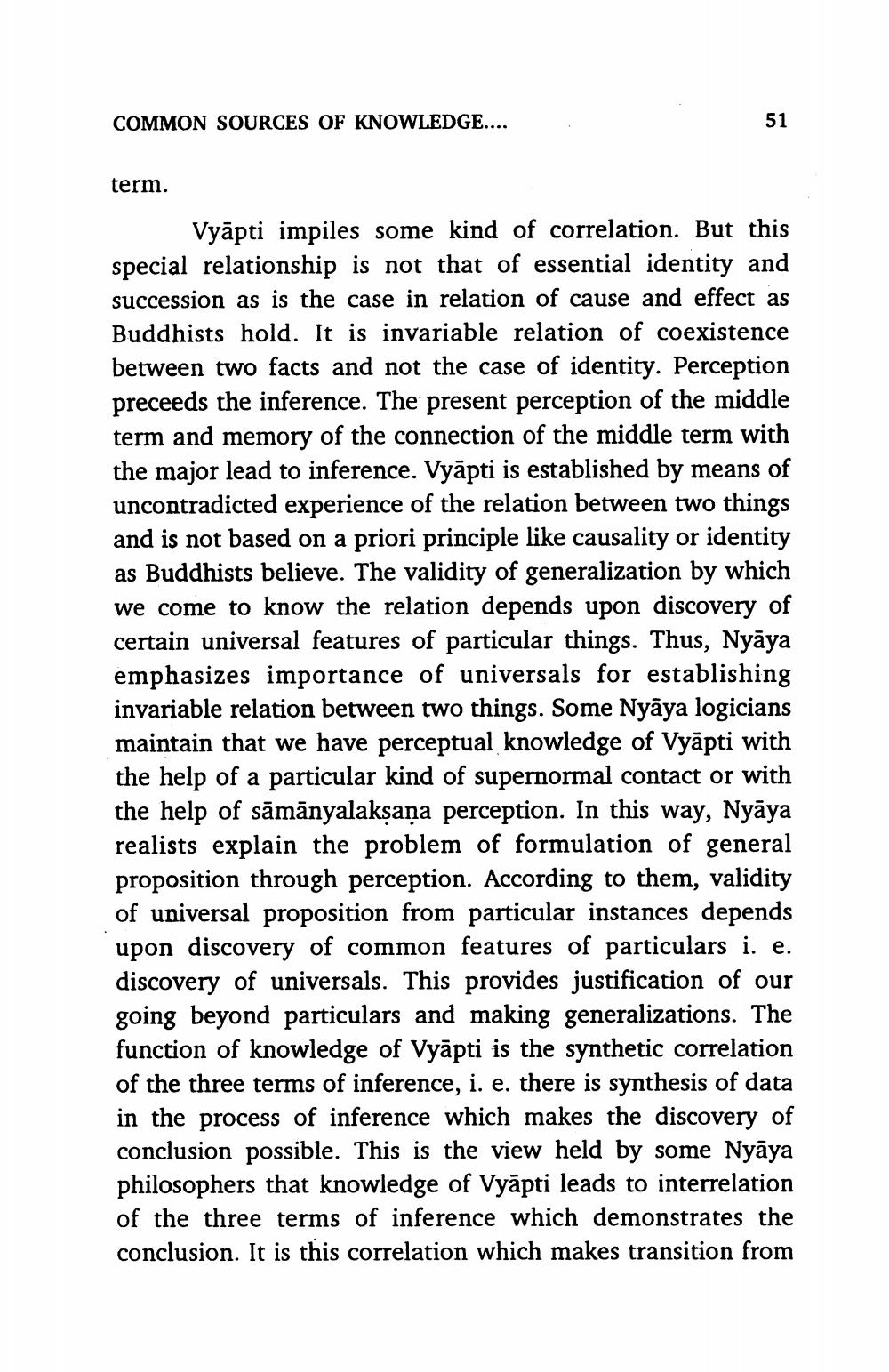________________
COMMON SOURCES OF KNOWLEDGE...
51
term.
Vyāpti impiles some kind of correlation. But this special relationship is not that of essential identity and succession as is the case in relation of cause and effect as Buddhists hold. It is invariable relation of coexistence between two facts and not the case of identity. Perception preceeds the inference. The present perception of the middle term and memory of the connection of the middle term with the major lead to inference. Vyāpti is established by means of uncontradicted experience of the relation between two things and is not based on a priori principle like causality or identity as Buddhists believe. The validity of generalization by which we come to know the relation depends upon discovery of certain universal features of particular things. Thus, Nyāya emphasizes importance of universals for establishing invariable relation between two things. Some Nyāya logicians maintain that we have perceptual knowledge of Vyāpti with the help of a particular kind of supernormal contact or with the help of sāmānyalaksana perception. In this way, Nyāya realists explain the problem of formulation of general proposition through perception. According to them, validity of universal proposition from particular instances depends upon discovery of common features of particulars i. e. discovery of universals. This provides justification of our going beyond particulars and making generalizations. The function of knowledge of Vyāpti is the synthetic correlation of the three terms of inference, i. e, there is synthesis of data in the process of inference which makes the discovery of conclusion possible. This is the view held by some Nyāya philosophers that knowledge of Vyāpti leads to interrelation of the three terms of inference which demonstrates the conclusion. It is this correlation which makes transition from




